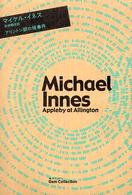- ホーム
- > 洋書
- > 英文書
- > Philosophy
Full Description
Hegel's philosophy of religion contains an implicit political theology. When viewed in connection with his wider work on subjectivity, history and politics, this political theology is a resource for apocalyptic thinking. In a world of climate change, inequality, oppressive gender roles and racism, Hegel can be used to theorise the hope found in the end of that world.
Histories of apocalyptic thinking draw a line connecting the medieval prophet Joachim of Fiore and Marx. This line passes through Hegel, who transforms the relationship between philosophy and theology by philosophically employing theological concepts to critique the world. Jacob Taubes provides an example of this Hegelian political theology, weaving Christianity, Judaism and philosophy to develop an apocalypticism that is not invested in the world. Taubes awaits the end of the world knowing that apocalyptic destruction is also a form of creation. Catherine Malabou discusses this relationship between destruction and creation in terms of plasticity. Using plasticity to reformulate apocalypticism allows for a form of apocalyptic thinking that is immanent and materialist.
Together Hegel, Taubes and Malabou provide the resources for thinking about why the world should end. The resulting apocalyptic pessimism is not passive, but requires an active refusal of the world.
Contents
Table of Contents:
Acknowledgments
Abbreviations
Introduction
1. Philosophy, political theology and the end of the world
What is political theology?
What is this world that ends?
Conflicts and antagonisms
Imagining the end
Questioning the apocalypse
2. Implicit Political Theology: Reading Hegel's Philosophy of Religion
Joachim, Hegel and the end of the world
Representational thought: An outline of Hegel's philosophy of religion
Hegel's implicit political theology
Philosophy and the return to representation
Conclusion
3. Spiritual disinvestment: Taubes, Hegel and apocalypticism
An introduction to Taubes
Taubes and the apocalyptic Hegel
The problem of apocalypticism and history
Taubes and Bloch
Anti-liberal tendencies in Hegel, Taubes and Schmitt
Transcendental materialist readings of Hegel: From Taubes to Malabou
4. Plastic Apocalypticism
Malabou, Hegel and plasticity
Plastic apocalypticism: Taubes and Malabou
The problem of alterity and the rejection of the transcendent
A Blochian supplement
Contingency and plastic apocalypticism
Conclusion
5. Pessimism and hope in apocalyptic living
Living with the absence of alternatives
Pessimism and surrender
Living towards the end of the world
The end
Bibliography
Index








